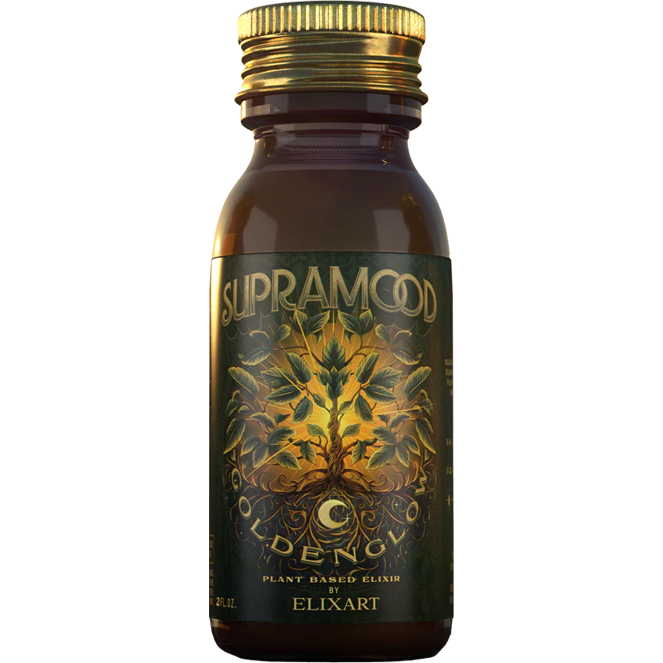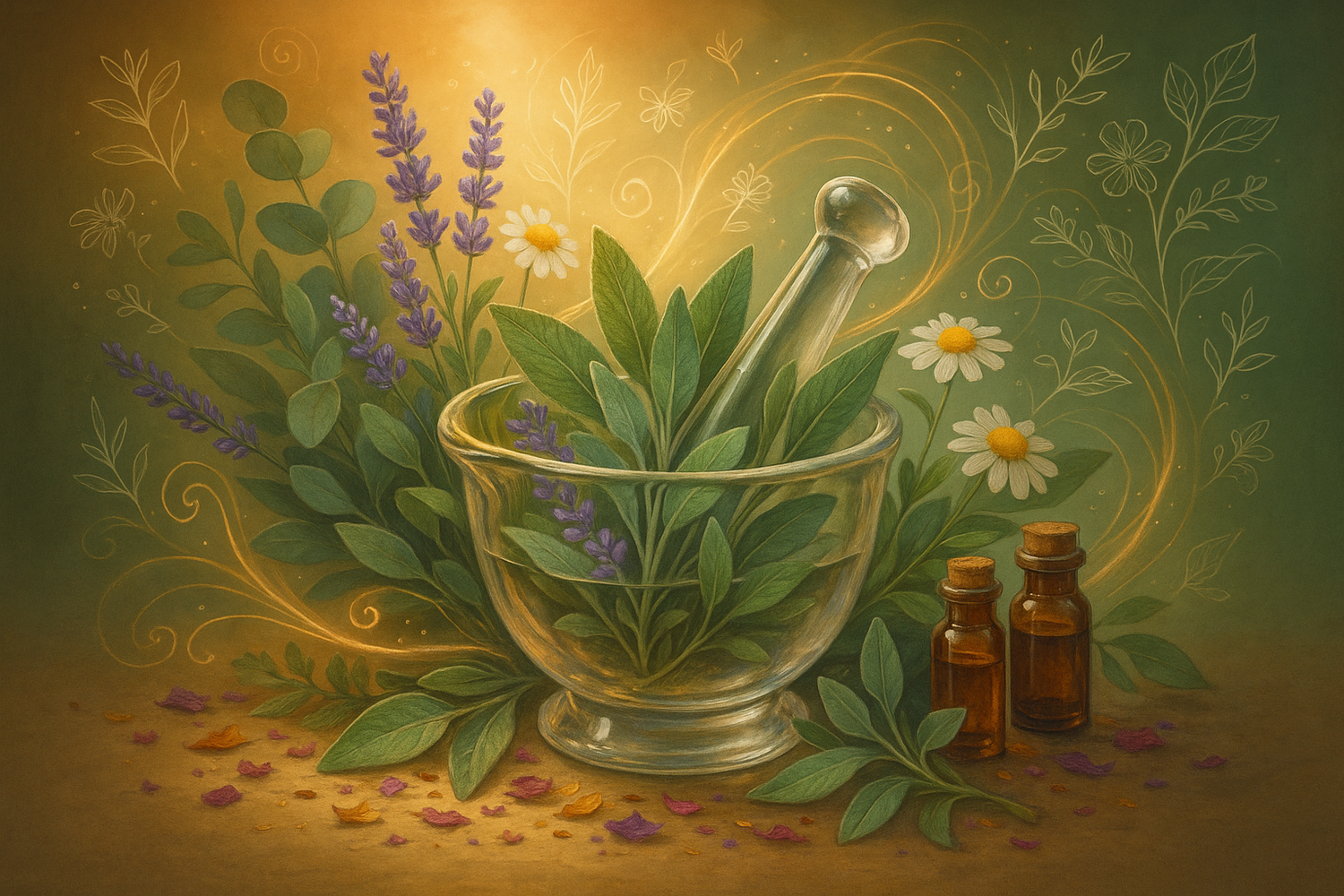Herbal therapies have been a cornerstone of traditional medicine for centuries. These treatments use plants, herbs, and botanicals to promote health and well-being. As more people become interested in holistic wellness, they are increasingly turning to these natural remedies alongside conventional medical treatments.
There are several reasons why this trend is growing:
- Natural Approach: Herbal therapies focus on using ingredients derived from nature.
- Holistic Wellness: Emphasis on treating the whole person—mind, body, and spirit.
- Fewer Side Effects: Often perceived as having fewer side effects compared to synthetic drugs.
The benefits of using natural remedies are many. Numerous herbs like turmeric and ginger contain antioxidants and anti-inflammatory properties that can help reduce chronic conditions. Herbal therapies also support immune health, relieve stress, and enhance overall quality of life.
By exploring herbal therapies, individuals have the chance to reconnect with nature and adopt a more balanced lifestyle. Incorporating these remedies into daily routines can lead to sustainable health and wellness practices.
The History of Herbal Therapies
Herbal therapies have been used since ancient times, with plant-based remedies being an essential part of everyday life in early civilizations. Knowledge about the healing properties of herbs has been passed down through generations, highlighting their importance in treating various ailments.
One significant influence on modern herbal practices is traditional Oriental medicine, particularly from China, Korea, and Japan. This system places great emphasis on maintaining balance and harmony within the body, taking a holistic approach to health.
In these herbal remedies, East Asian plants are key ingredients that serve specific purposes:
- Ginseng: Known for its ability to boost energy levels.
- Angelica: Often used for its anti-inflammatory effects.
- Astragalus: Valued for its ability to enhance the immune system.
These plants are carefully chosen and combined to create powerful formulas that target specific health issues. By integrating ancient practices with modern herbal therapies, we can see how traditional knowledge continues to be relevant and impactful today.
Popular Herbal Remedies
Exploring the array of popular herbal remedies opens a door to numerous natural solutions that have been appreciated for their health benefits.
Health Benefits of Turmeric and Ginger
Turmeric and ginger are two potent herbs often used in both culinary and medicinal contexts.
- Turmeric: Known for its vibrant yellow color, turmeric contains curcumin, a compound celebrated for its anti-inflammatory and antioxidant properties. This herb is often recommended for conditions such as arthritis, digestive issues, and even as a support for brain health.
- Ginger: Recognized for its distinctive spicy flavor, ginger is another powerhouse. It aids in digestion, reduces nausea, and has anti-inflammatory effects. It's commonly used to alleviate symptoms of colds and flu.
Immune-Boosting Properties of Echinacea
Echinacea, a flowering plant native to North America, stands out for its immune-boosting capabilities.
- This herb is frequently consumed in the form of teas, tinctures, or supplements.
- It’s reputed to reduce the duration and severity of colds by enhancing the immune response.
Scientific studies suggest echinacea might increase the number of white blood cells, which are essential in fighting infections.
Relaxation Effects of Chamomile and Peppermint
When it comes to relaxation and stress relief, chamomile and peppermint are highly valued.
- Chamomile: Often consumed as tea, chamomile is praised for its calming effects. It can help with sleep disorders, reduce anxiety, and soothe digestive issues. The herb's mild sedative properties make it a popular choice before bedtime.
- Peppermint: Known for its refreshing aroma and cooling sensation, peppermint can aid in alleviating tension headaches and indigestion. It’s also effective in reducing symptoms of irritable bowel syndrome (IBS).
By integrating these powerful herbal remedies into your daily routine, you might find natural ways to enhance your health and well-being.
Recognizing the unique benefits each herb offers allows you to tailor their use to your specific needs.
Understanding Herbology
Herbology is the study and use of plants for medicinal purposes. It is an essential part of traditional medicine, focusing on understanding the properties and uses of various herbs to promote health and wellness. Herbology emphasizes the importance of using natural remedies directly sourced from plants.
The Role of Ginseng in Herbal Medicine
Ginseng is a well-known herb in Eastern medicine that has been used for centuries due to its numerous health benefits. This adaptogenic herb is praised for its ability to:
- Boost energy levels: Ginseng enhances physical and mental stamina, making it a popular choice for combating fatigue.
- Improve cognitive function: Regular consumption can lead to better memory and concentration.
- Support immune system: Its immune-boosting properties help the body fight off illnesses more effectively.
Benefits of Angelica and Astragalus
Two other notable herbs in herbology are angelica and astragalus. Each offers unique advantages that contribute to overall wellness.
Angelica
Angelica is often used in traditional Chinese medicine for its:
- Digestive support: It aids in alleviating digestive issues such as bloating and indigestion.
- Anti-inflammatory properties: Helps reduce inflammation in the body, providing relief from conditions like arthritis.
- Hormonal balance: Especially beneficial for women, it helps regulate menstrual cycles and relieve menopausal symptoms.
Astragalus
Astragalus stands out for its impressive health benefits:
- Immune enhancement: Known for boosting the immune system, astragalus helps protect against colds and infections.
- Cardiovascular support: It improves heart health by lowering blood pressure and improving circulation.
- Anti-aging effects: Rich in antioxidants, it helps combat the effects of aging by protecting cells from damage.
Understanding these herbs' roles highlights how herbology integrates nature's gifts into everyday wellness routines. Integrating ginseng, angelica, and astragalus into your lifestyle can provide comprehensive health benefits that support both physical and mental well-being.
Herbal Therapies in Different Industries
Use of Herbal Therapies in the Cosmetics Industry
Herbal therapies have significantly influenced the cosmetics industry, known for their natural and gentle properties. Many skincare products now incorporate herbal ingredients to enhance their efficacy and provide additional benefits.
- Aloe Vera: Widely used for its soothing and moisturizing properties.
- Chamomile: Known for its anti-inflammatory and calming effects on the skin.
- Green Tea Extract: Popular for its antioxidant properties, helping to fight free radicals and signs of aging.
These natural ingredients are often preferred by consumers looking for chemical-free and sustainable beauty solutions. The incorporation of herbs not only boosts the product's effectiveness but also aligns with the growing demand for eco-friendly and organic products.
Herbal Medicines in the Pharmaceutical Sector
The pharmaceutical sector has long recognized the potential of herbal medicines. Extensive research continues to uncover new applications and benefits of these natural remedies.
- Ginkgo Biloba: Used to improve cognitive function and treat memory disorders.
- St. John's Wort: Commonly prescribed for mild to moderate depression.
- Milk Thistle: Known for its liver-protective properties.
Pharmaceutical companies invest in clinical trials to validate the efficacy of these herbs, ensuring they meet safety standards. This ongoing research not only enhances our understanding of how these herbs work but also paves the way for developing new treatments based on traditional knowledge.
Herbal therapies continue to make strides in various industries, particularly cosmetics and pharmaceuticals. The integration of natural remedies highlights their versatility and underscores their potential in promoting health and well-being.
Safety Measures for Using Herbal Therapies
Herbal therapies offer many advantages, but it's crucial to be cautious when adding them to your wellness routine. Knowing about possible interactions and contraindications can prevent negative effects and make sure you consume them safely.
Why Caution is Important
- Individual Differences: Each person's body reacts differently to herbs. What works for one may not work for another.
- Health Conditions: Certain medical conditions may worsen with specific herbs. For example, those with liver issues should be wary of kava due to its potential hepatotoxicity.
- Pregnancy and Nursing: Pregnant or breastfeeding women need to be particularly careful. Some herbs may affect fetal development or lactation.
Tips for Safe Consumption
- Consult Healthcare Providers: Always discuss with a doctor or a qualified herbalist before starting any herbal therapy, especially if you’re taking prescription medications. Herbs like St. John’s Wort can interact with various medications, reducing their efficacy.
- Research and Educate Yourself: Familiarize yourself with the herb you plan to use. Understand its benefits, recommended dosages, and any known side effects or interactions.
- Start Small: Begin with small doses to see how your body reacts before gradually increasing to the recommended amount.
- Check Labels and Sources: Ensure that the herbal products you purchase are from reputable sources. Look for quality certifications and third-party testing.
- Monitor Your Body's Response: Pay close attention to any changes in your health or new symptoms that arise after starting an herbal remedy.
Potential Interactions to Be Aware Of
- Blood Thinners: Herbs like garlic and ginkgo biloba can enhance the effects of blood-thinning medications, increasing the risk of bleeding.
- Blood Pressure Medications: Licorice root may interfere with blood pressure drugs, potentially causing dangerously high levels.
- Diabetes Medications: Fenugreek has blood sugar-lowering properties that might amplify the effects of diabetes medications, leading to hypoglycemia.
Understanding these safety measures ensures a balanced approach when incorporating herbal therapies into your lifestyle. This awareness helps maximize benefits while minimizing risks associated with improper use or interactions.
The Future of Herbal Therapies
Using Informational Content to Build Brand Awareness
The rise of digital platforms provides a special opportunity for herbal therapy brands to use informational content marketing strategy effectively. By creating valuable and well-researched content, brands can teach consumers about the advantages and proper usage of herbal remedies. This approach not only helps in gaining trust but also increases brand awareness. Engaging blogs, detailed guides, and interactive webinars can establish a brand as an authority in the herbal therapy industry.
Potential Growth and Impact
Herbal therapies are more than just a passing fad; they represent a shift towards sustainable and holistic wellness. The global market for herbal medicines is expected to experience significant growth. Factors like growing consumer interest in natural products, advancements in herbal research, and the merging of traditional knowledge with modern science are driving this expansion.
This trend has a broader significance beyond individual well-being. Herbal therapies contribute to the preservation of biodiversity and support local economies that cultivate medicinal plants. This double advantage highlights the potential of herbal therapies to promote both personal and environmental health.
The changing landscape holds promise for a future where herbal therapies become an integral part of healthcare approaches, backed by thorough scientific validation and widespread consumer acceptance.
Conclusion
Herbal therapies offer a compelling path to holistic wellness. Incorporating natural remedies into your daily routine can enhance your overall health and well-being. The vibrant world of herbs—ranging from turmeric and ginger to echinacea, chamomile, and peppermint—provides diverse benefits that cater to various health needs.
Experiment with different herbal remedies to discover what works best for you. This journey is not only about finding effective treatments but also about connecting with nature and understanding the age-old wisdom behind these therapies.
Remember to approach herbal therapies with caution, ensuring safe consumption and being aware of potential interactions. Consulting healthcare professionals can provide invaluable guidance tailored to your unique health profile.
Embrace the power of herbal therapies as part of your comprehensive approach to wellness. Make informed choices, remain curious, and let nature's bounty guide you toward a healthier lifestyle.
"The greatest wealth is health." — Virgil
FAQs (Frequently Asked Questions)
What are herbal therapies and holistic wellness?
Herbal therapies and holistic wellness encompass the use of natural remedies to promote overall well-being and health. This approach focuses on using natural substances and traditional knowledge to address various health concerns.
What is the history of herbal therapies?
Herbal therapies have roots in ancient knowledge and traditional Oriental medicine. They often involve the use of East Asian botanicals and have been a part of traditional healing practices for centuries.
What are some popular herbal remedies and their benefits?
Some popular herbal remedies include turmeric, ginger, echinacea, chamomile, and peppermint. These herbs offer a range of health benefits such as immune-boosting properties, relaxation effects, and overall wellness support.
What is herbology and what are its key components?
Herbology is the study and practice of using herbs for their therapeutic properties. It involves understanding the significance of herbs such as ginseng, angelica, and astragalus in promoting health and well-being.
How are herbal therapies used in different industries?
Herbal therapies are utilized in the cosmetics industry for their natural benefits, as well as in the pharmaceutical sector where ongoing research explores their potential medicinal applications.
What safety measures should be considered when using herbal therapies?
It is important to exercise caution when using herbal therapies due to potential interactions and contraindications. Safe consumption tips should be followed, and individuals should be aware of any possible interactions with other medications or conditions.
How can informational content marketing strategy contribute to the future growth of herbal therapies?
Utilizing informational content can help create brand awareness in the herbal therapy industry, leading to potential growth and impact in the future. This approach allows for educating consumers about the benefits of herbal therapies as part of holistic wellness.







Leave a comment
This site is protected by hCaptcha and the hCaptcha Privacy Policy and Terms of Service apply.